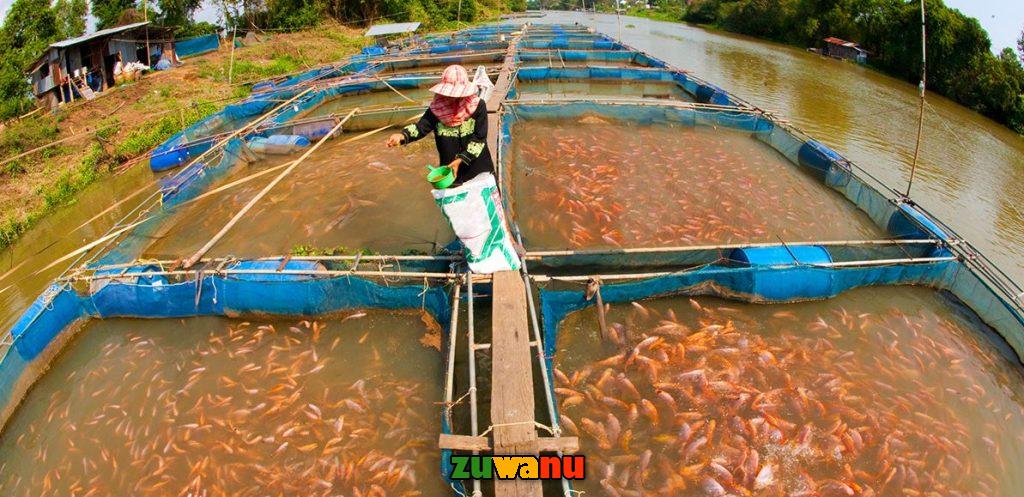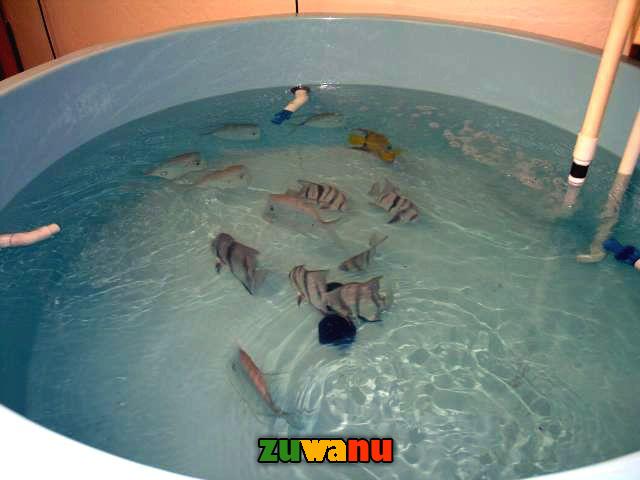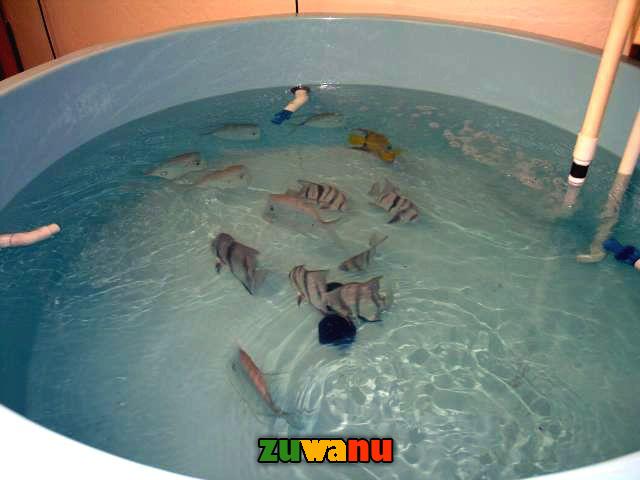how to start fish farming on small scale in nigeria
Table of Contents
How to start a fish farm in Nigeria?

Fish farming, also known as aquaculture, is the practice of raising fish in controlled environments, such as tanks or ponds. It is a rapidly growing industry that offers a lot of potential for those looking to start a business with low capital. In this post, we will discuss how to start a small-scale fish farming business and how to grow it quickly within a year.
Before getting started, it is important to conduct research on the different types of fish that are commonly farmed, such as tilapia, catfish, and trout. This will help you determine which species will be most suitable for your area and market. Additionally, research the costs associated with fish farming, such as the cost of tanks, feed, and equipment.
Once you have a good understanding of the costs and which fish species to raise, the next step is to find a suitable location for your farm. This can be a small piece of land, a backyard pond, or even a large tank in your garage. The key is to make sure that the location has access to clean water and a steady supply of electricity.
Next, you will need to purchase the necessary equipment, such as tanks, filters, pumps, and aerators. These can be purchased new or used, but it is important to ensure that they are in good working condition. Additionally, you will need to purchase the necessary feed for the fish, which can vary depending on the species.
Once your tanks are set up and your fish are in the water, it’s important to maintain proper water quality. This means regularly testing the pH level, ammonia levels, and temperature of the water, and making adjustments as necessary. Additionally, you should keep an eye out for any signs of disease or parasites, and take action immediately if any are detected.
In order to grow your fish farming business quickly within a year, it’s important to focus on marketing and sales. This can include reaching out to local restaurants and grocery stores to see if they would be interested in purchasing your fish. Additionally, you can set up a website and social media accounts to promote your business and attract customers.
Another way to grow your business quickly is to diversify your product line. For example, you can start raising different types of fish, such as tilapia and catfish, and offer a variety of products, such as fresh fish and fish fillets. Additionally, you can explore other aquaculture ventures, such as oyster farming or shrimp farming, to diversify your income streams.
In conclusion, starting a small-scale fish farming business is a great way to enter the aquaculture industry with low capital. By conducting research, finding a suitable location, purchasing the necessary equipment, and maintaining proper water quality, you can quickly grow your business within a year by focusing on marketing and sales, diversifying your product line and exploring other aquaculture ventures. Remember, always consult local and state regulations before starting any fish farming business.
Required Tools for Small-Scale Fish Farming

| Tool | Description |
|---|---|
| Fish tanks or ponds | Containers to hold the fish, can be purchased new or used |
| Filters | Keep the water clean and clear of waste |
| Pumps and aerators | Keep the water oxygenated and circulating |
| Water testing kit | To test pH levels, ammonia levels, and temperature of the water |
| Feed | Fish food, vary depending on the species |
| Netting | To separate and protect different fish species or to harvest fish |
| Harvesting equipment | To remove the fish from the tank or pond |
| Thermometer | To measure the water temperature |
| pH meter | To measure the pH level of the water |
| Water Chlorinator | To disinfect the water |
| Water treatment chemicals | To treat water for disease or parasites |
Dont miss: geographic tongue Signs and best Treatments 2022
How to get canada residence permit without the help of a lawyer or agents 2023
Is small scale fish farming profitable?
Small scale fish farming can be profitable, but it depends on several factors such as the species of fish being farmed, the cost of inputs (e.g. feed, equipment), and the market price for the fish. Additionally, factors such as location, water quality, and proper management practices can also impact the profitability of small scale fish farming. It’s recommended to do a market research and a cost-benefit analysis before starting a small-scale fish farming.
Which fish is easy to farm?
Tilapia is a species of fish that is commonly farmed due to its hardiness, fast growth rate, and ability to thrive in a wide range of water conditions. Other species that are also relatively easy to farm include carp, catfish, and salmon.
The cost of starting a fish farming business can vary greatly depending on the size and scale of the operation, as well as the type of fish being farmed. A small-scale home operation can be started for as little as a few hundred dollars, while a large commercial operation can cost hundreds of thousands or even millions of dollars.
Some of the costs associated with starting a fish farm include:
- The cost of land or water rights
- The cost of building or leasing a fish farm facility
- The cost of equipment such as tanks, pumps, and aeration systems
- The cost of fingerlings or adult fish to stock the farm
- The cost of feed and other supplies
- The cost of labor and ongoing maintenance.
It’s also important to consider the cost of getting a license, and if applicable the cost of environmental impact study.
It’s recommendable to consult with local authorities and experts in the field to get an accurate idea of the costs associated with starting a fish farm in your specific area.
How to start a fish farm in Nigeria hassle free?
Starting a fish farm in Nigeria involves several steps:
- Conduct market research: Understand the demand for fish in the area and identify the types of fish that are in high demand.
- Obtain necessary licenses and permits: Fish farming in Nigeria is regulated by the federal and state governments. You will need to obtain licenses and permits from relevant authorities such as the Nigeria Inland Fisheries Research Institute and the Ministry of Agriculture and Rural Development.
- Choose a suitable location: Select a location for the fish farm that has access to clean water and is close to markets for easy transportation of fish.
- Decide on the type of fish to farm: Choose the type of fish that you want to farm based on the market demand and your personal preference. Common types of fish farmed in Nigeria include tilapia, catfish, and carp.
- Build the fish farm: Construct the necessary infrastructure for the fish farm such as ponds, tanks, or cages.
- Purchase fingerlings: Obtain fingerlings of the chosen fish species from reputable hatcheries.
- Feed and care for the fish: Regularly feed and care for the fish to ensure they grow healthy and reach maturity within a reasonable time frame.
- Harvest and sell the fish: Once the fish are ready, harvest them and sell them to markets or processors.
It is also important to note that you should also consider the cost of the inputs and the expected revenue, as well as the laws and regulations that govern the fish farming industry in Nigeria.
The Disadvantages of fish farming Business.
There are several disadvantages to fish farming, including:
- Disease and parasites: Fish in crowded conditions are more susceptible to disease and parasites, which can lead to significant losses.
- Pollution: Fish farms can contribute to pollution of the surrounding water if waste and chemicals are not properly managed.
- Escaped fish: Farmed fish can escape and interbreed with wild fish, potentially disrupting natural ecosystems and genetic diversity.
- High costs: Fish farming can be expensive, requiring significant investments in infrastructure, equipment, and fish stock.
- Dependence on feed: Fish farms often rely heavily on manufactured feed, which can be costly and may not be sustainable in the long-term.
- Risk of overproduction: When fish farming is done on a large scale, there is a risk of overproduction, which can lead to a drop in prices and make it difficult for farmers to make a profit.
- The threat to wild fish: As fish farming is often done in open waters, they can compete with wild fish for food and habitat. Also, escaped fish can hybridize with wild fish and lead to genetic pollution.
- Sea lice and other parasites: Farmed fish are often more susceptible to sea lice and other parasites, which can be difficult to control and can spread to wild fish populations.
It is important to consider these disadvantages before starting a fish farm and to take appropriate measures to minimize their impact.
The advantages of Fish farming.
There are several advantages to fish farming, including:
- Consistent food supply: Fish farming can provide a consistent and reliable source of food for human consumption.
- Job creation: Fish farming creates jobs for those involved in the production, processing, and distribution of fish.
- Economic development: Fish farming can contribute to the economic development of rural and coastal areas by creating new business opportunities and income streams.
- Sustainable protein source: Fish is a healthy and sustainable protein source, especially when compared to meat from land animals.
- Reduced pressure on wild fish populations: Fish farming can help reduce the pressure on wild fish populations by providing a source of fish that does not rely on wild catches.
- Contribution to food security: Fish farming can help to improve food security in areas where fish is a staple food.
- Climate change adaptation: Fish farming can help farmers adapt to changes in weather and water availability, making it a more resilient livelihood option.
- Efficient use of resources: Fish can be farmed in a relatively small area of land, and in a small volume of water, making it more efficient use of resources than other forms of animal farming.
- Potential for integrated systems: Fish farming can be integrated with other forms of farming, such as crop and livestock production, to increase efficiency and reduce costs.
It is important to consider these advantages when starting a fish farm and to take appropriate measures to ensure that the fish farming operation is sustainable and profitable.
Securing Your Potential customers and Target market.
Attracting and retaining customers is crucial for the success of any business, including fish farming. Here are a few ways to get great customers for your fish farm:
- Identify your target market: Understand the needs and preferences of your target customers, and tailor your products and services to meet those needs.
- Networking and marketing: Network with other businesses and organizations in the industry to increase visibility and attract new customers. Use various marketing techniques such as social media, flyers, brochures, and other promotional materials to create awareness about your fish farm.
- Quality and consistency: Ensure that the fish you produce are of high quality and consistently meet customer expectations. This can be achieved by implementing good farming practices and maintaining strict hygiene standards.
- Customer service: Provide excellent customer service to build trust and loyalty among your customers. Respond promptly to customer inquiries and complaints and make sure they are satisfied with their purchase.
- Build relationships: Building relationships with customers can help to increase repeat business. Get to know your customers and understand their needs.
- Offer discounts and promotions: Offering discounts and promotions can attract new customers and increase repeat business.
- Show your expertise: Share your knowledge and expertise in the fish farming industry with your customers. This will help to build trust and credibility, which can lead to more customers.
- Meet the needs of your customers: Be flexible and willing to meet the needs of your customers. For example, if your customers need fish in large quantities, be willing to produce more.
By following these tips, you can attract and retain great customers for your fish farm and ensure the long-term success of your business.

